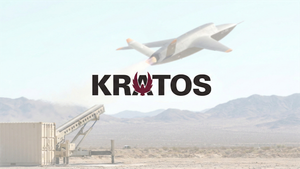- KZR-616 demonstrates improvement across all exploratory efficacy measures and is observed to be well-tolerated up to 75 mg subcutaneously once weekly for 13 weeks.
- The MISSION Phase 1b data support the development of KZR-616 in multiple immune-mediated diseases.
- Conference call and webcast to be held at 4:30pm ET.
Kezar Life Sciences, Inc. (Nasdaq: KZR), a clinical-stage biotechnology company discovering and developing breakthrough treatments for immune-mediated and oncologic disorders, today reported results from the completed Phase 1b dose escalation portion of its MISSION study, evaluating KZR-616, a first-in-class selective immunoproteasome inhibitor, in systemic lupus erythematosus (SLE) patients with and without nephritis. The data are being presented by Richard Furie, M.D., Chief of Division of Rheumatology at Northwell Health in New York, in a poster session at EULAR, the Annual European Congress of Rheumatology, being held virtually from June 2 to 5, 2021. The poster can be found on Kezar’s website under the “Our Science” section.
“MISSION Phase 1b was planned as a dose-finding study but provided us with a wealth of information beyond dosing. The safety and tolerability profile seen with KZR-616 appears favorable for a treatment that would be use in chronic diseases,” said Noreen R. Henig, M.D., Kezar’s Chief Medical Officer. “Importantly, the observed improvement across multiple exploratory efficacy measures and key biomarkers, including a highly specific marker of kidney inflammation, increases our conviction that KZR-616 has the potential to disrupt the treatment paradigm for immune-mediated diseases such as SLE and LN.”
The Phase 1b dose escalation portion of MISSION (NCT03393013) evaluated doses of 45 mg to 75 mg of KZR-616 administered subcutaneously once weekly in 47 patients with SLE, including 2 patients with active proliferative lupus nephritis (LN). Six cohorts were completed in which patients received 13 weekly doses of KZR-616 and were followed for an additional 12 weeks. 35 of 47 patients completed the study. Safety, tolerability, and early efficacy has been previously reported from early cohorts. The presentation at EULAR 2021 represents the full data set.
Highlights from the poster presentation of the MISSION Phase 1b are summarized below:
-
Encouraging trends in exploratory efficacy were confirmed across cohorts, including the improvement of 7 SLE-specific disease activity scores.
- Mean disease activity scores improved in patients who completed the 13-week treatment period (n=35), and improvement in disease activity persisted following the end-of-treatment.
-
Improvement in key biomarkers indicating a reduction in disease activity were also observed.
- 8 of 8 patients with elevated anti-double-stranded DNA antibody (anti-dsDNA) levels at baseline (previously reported, n=7) had a reduction in anti-dsDNA levels. Improvement in disease activity persisted following the end-of-treatment.
-
Kezar previously reported that two of two patients with active proliferative LN had a greater than 50% reduction in urine protein to creatinine ratio (UPCR) and experienced reductions in SLEDAI-2K scores and anti-dsDNA levels.
- New biomarker data on these two patients with LN show baseline elevation of urine CD163, a marker of inflammatory activity in the kidney in patients with LN. Both patients also had a reduction in uCD163, suggesting an important anti-inflammatory effect not achieved with the background therapies.
-
The safety and tolerability of KZR-616 is favorable and consistent with needs for a long-term therapy. No new safety or tolerability signals were observed from previously reported data.
- Most treatment emergent adverse events (TEAEs) occurred early and diminished with later doses with the most common being injection site reactions.
- Doses being investigated in the Phase 2 clinical trials are 60 mg (MISSION Phase 2 in LN) and 45 mg (PRESIDIO Phase 2 in dermatomyositis and polymyositis).
Detailed safety and efficacy data are included below:
Mean Score for All Cohorts Patients completing Study (n=35) |
|||
Baseline |
End of
(Week 13) |
End of Study
|
|
Systemic Lupus Erythematosus Disease Activity Index 2000 (SLEDAI-2K) |
9.1 |
6.6 |
7.1 |
Cutaneous Lupus Erythematosus Severity Index-Activity (CLASI-A) |
4.3 |
2.3 |
2.3 |
Tender Joint Count (TJC) |
11.1 |
4.8 |
5.8 |
Swollen Joint Count (SJC) |
7.6 |
2.5 |
2.3 |
Physician Global Assessment (PhGA) |
57.0 |
39.7 |
38.2 |
Patient Global Assessment (PtGA) |
58.3 |
38.2 |
42.7 |
| HAQ-pain | 58.5 |
43.1 |
41.7 |
Measures,
|
Cohort 1 (n=8) |
Cohort 2 (n=5) |
Cohort 2a (n=14) |
Cohort 2b (n=6) |
Cohort 2c (n=8) |
Cohort 3 (n=6) |
All
|
≥1 TEAE |
8 (100.0) |
5 (100.0) |
12 (85.7) |
4 (66.7) |
7 (87.5) |
3 (50.0) |
39 (83.0) |
Injection Site Erythema |
5 (62.5) |
2 (40.0) |
5 (35.7) |
2 (33.3) |
6 (75.0) |
0 (0) |
20 (42.6) |
Nausea |
2 (25.0) |
4 (80.0) |
5 (35.7) |
1 (16.7) |
4 (50.0) |
3 (50.0) |
19 (40.4) |
Vomiting |
1 (12.5) |
5 (100.0) |
3 (21.4) |
1 (16.7) |
2 (25.0) |
1 (16.7) |
13 (27.7) |
Infections and Infestations TEAEs |
1 (12.5) |
0 (0) |
5 (35.7) |
2 (33.3) |
2 (25.0) |
1 (16.7) |
11 (23.4) |
Serious TEAEs |
0 (0) |
1 (20.0) |
2 (14.3) |
1 (16.7) |
0 (0) |
0 (0) |
4 (8.5) |
TEAEs leading to discontinuation |
3 (37.5) |
3 (60.0) |
2 (14.3) |
0 (0) |
0 (0) |
2 (33.3) |
10 (21.3) |
- Cohorts 2b, 2c, and 3 received a lyophilized formulation of KZR-616, prophylactic oral electrolyte solution, nonsedating antihistamines, and antiemetics and/or dose escalation.
- There were two additional discontinuations due to failure to follow-up and noncompliance in cohort 2a.
About MISSION
MISSION (NCT03393013) is a Phase 1b/2 clinical trial evaluating KZR-616 in SLE patients with and without nephritis. The study consists of two parts. The Phase 1b portion is an open-label dose escalation study evaluating doses up to 75 mg of KZR-616 across 6 cohorts. The primary objective of the Phase 1b portion of MISSION is to assess safety and tolerability. Secondary objectives include evaluating pharmacokinetics (PK) and pharmacodynamics (PD) and selecting dose levels for the Phase 2 trials. Several exploratory efficacy measures are also being assessed: Systemic Lupus Erythematosus Disease Activity Index 2000 (SLEDAI-2K), Cutaneous Lupus Erythematosus Severity Index-Activity (CLASI-A), Tender and Swollen Joint Counts (TJC/SJC), Physician Global Assessment (PhGA), Patient Global Assessment (PtGA) and Patient Assessment of Pain (PtP). The Phase 2 portion of the MISSION study evaluating KZR-616 in patients with LN is currently enrolling.
About KZR-616
KZR-616 is a novel, first-in-class, selective immunoproteasome inhibitor with broad therapeutic potential across multiple autoimmune diseases. Preclinical research demonstrates that selective immunoproteasome inhibition results in a broad anti-inflammatory response in animal models of several autoimmune diseases, while avoiding immunosuppression. Data generated from Phase 1a and 1b clinical trials provide evidence that KZR-616 exhibits a favorable safety and tolerability profile for development in severe, chronic autoimmune diseases. Phase 2 trials are underway in severe autoimmune diseases.
About Kezar Life Sciences
Kezar Life Sciences is a clinical-stage biopharmaceutical company bringing novel treatments to patients with rare autoimmune diseases and cancer. The company is pioneering first-in-class, small-molecule therapies that harness master regulators of cellular function to inhibit multiple drivers of disease via single, powerful targets. KZR-616, its lead development candidate, is a selective immunoproteasome inhibitor being evaluated in Phase 2 clinical trials in lupus nephritis, dermatomyositis and polymyositis. Additionally, KZR-261, the first anti-cancer clinical candidate from the company’s platform targeting the Sec61 translocon and the protein secretion pathway, is undergoing IND-enabling activities. For more information, visit kezarlifesciences.com.
Cautionary Note on Forward-looking Statements
This press release contains forward-looking statements within the meaning of the Private Securities Litigation Reform Act of 1995. Words such as “may,” “will,” “should,” “expect,” “believe” and similar expressions (as well as other words or expressions referencing future events, conditions or circumstances) are intended to identify forward-looking statements. These forward-looking statements are based on Kezar’s expectations and assumptions as of the date of this press release. Each of these forward-looking statements involves risks and uncertainties that could cause Kezar’s clinical development programs, future results or performance to differ materially from those expressed or implied by the forward-looking statements. Forward-looking statements contained in this press release include, but are not limited to, statements about the design, progress, timing, scope and results of clinical trials, the anticipated timing of disclosure of results of clinical trials, the likelihood data will support future development, the association of data with treatment outcomes and the likelihood of obtaining regulatory approval of Kezar’s product candidates. Many factors may cause differences between current expectations and actual results, including the impacts of the COVID-19 pandemic on the company’s business, clinical trials and financial position, unexpected safety or efficacy data observed during preclinical or clinical studies, clinical trial site activation or enrollment rates that are lower than expected, changes in expected or existing competition, changes in the regulatory environment, the uncertainties and timing of the regulatory approval process, and unexpected litigation or other disputes. Other factors that may cause actual results to differ from those expressed or implied in the forward-looking statements in this press release are discussed in Kezar’s filings with the U.S. Securities and Exchange Commission, including the “Risk Factors” contained therein. Except as required by law, Kezar assumes no obligation to update any forward-looking statements contained herein to reflect any change in expectations, even as new information becomes available.
View source version on businesswire.com: https://www.businesswire.com/news/home/20210602005383/en/
Contacts
Celia Economides
SVP, Strategy & External Affairs
IR@kezarbio.com
Argot Partners
(212)-600-1902
kezar@argotpartners.com





